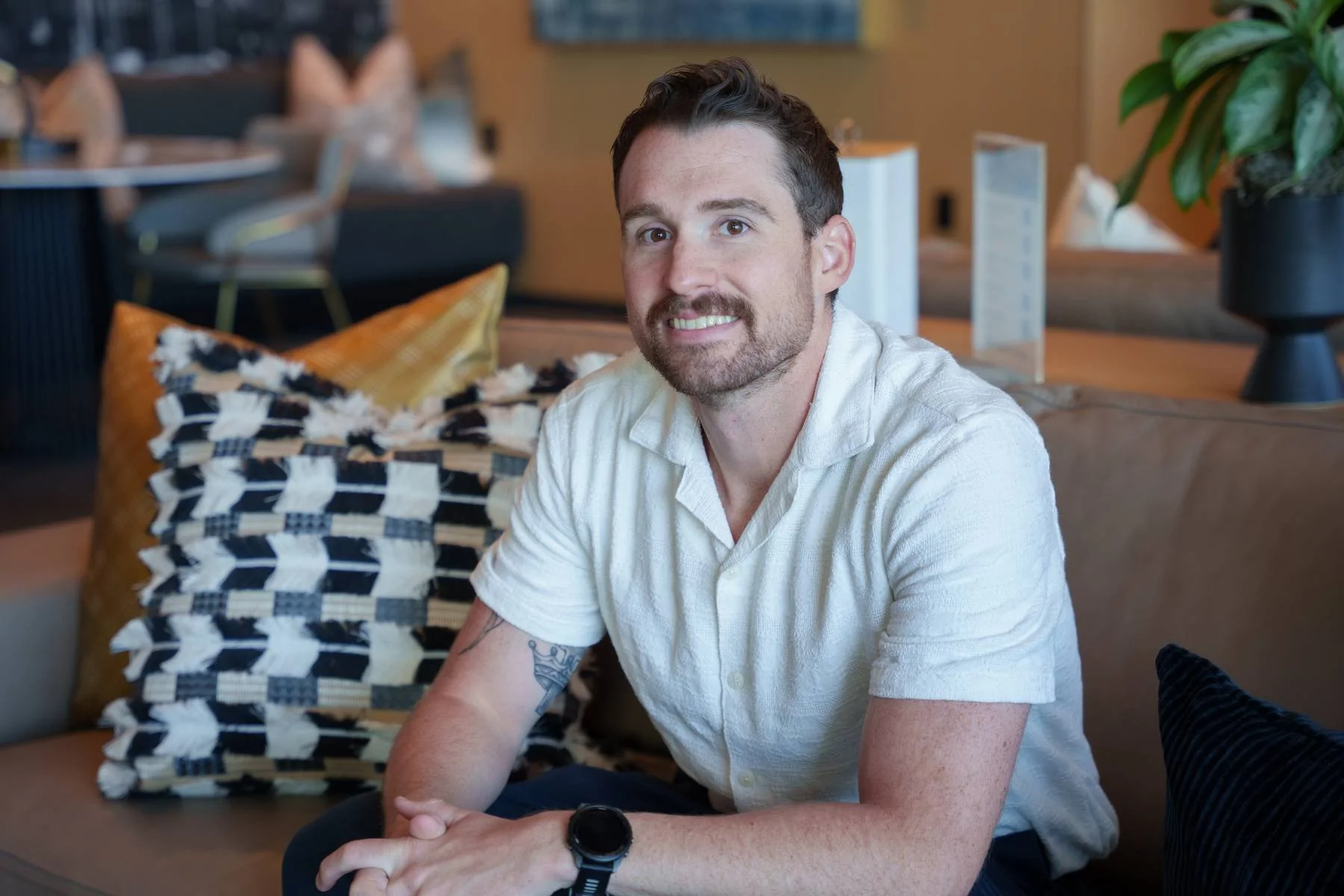
Hi, I’m Zach.
I am a writer shaped by contemplative spirituality, ordinary life, and the slow work of paying attention.
I am also a seminary graduate, trained spiritual director, and the author of Deconstruct with Jesus.
I have spent the past decade walking through seasons of spiritual disorientation, recovery, and change, both with others and in my own life.
My work is rooted in contemplative spirituality, deep listening, and the slow, often messy process of discovering a faith that can actually be lived.
SOme of My “Credentials”
Seminary graduate with an M.Div. from Lipscomb University
Trained spiritual director, including intensive formation in the Spiritual Exercises of St. Ignatius
Over a decade walking with people through things like deconstruction, recovery, grief, and spiritual change
Former life coach and addiction recovery coach
Cofounder of Eremos, a nonprofit focused on contemplative spiritual health
Author of Deconstruct with Jesus
All of that matters less to me than learning how to live honestly and write about it clearly.
SOme of My
Hobbies
Reading theology, spirituality, Lord of the Rings, or anything with depth
Lifting weights and training for marathons
Enjoying a good cigar, a well-made cocktail, or a solid craft beer
Listening to music: metal, ambient, folk, and everything in between
Spending quality time with my wife, our friends, and our dog, Lucy
Planning my next tattoo and trying to live with a little more meaning
I’m serious about faith, but not interested in pretending to be more certain, polished, or important than I am.
My Journey (The Short Version)
I grew up in church as the kid who got everything right.
Youth group leader. The one with the answers. The example adults pointed to.
For a while, it worked.
My beliefs were neat, clear, and untested.
Then I left for college.
Studying the Bible in an academic setting while stepping outside the sheltered world I came from unraveled everything. The theology I’d inherited couldn’t hold the weight of real life. My image of God cracked open. The harder I tried to keep it together, the more it fell apart.
Eventually, I let it go.
For a time, I stopped believing altogether.
What brought me back wasn’t a book, a church, or an argument. It was an encounter.
Quiet, unexpected, and still hard to explain.
I sensed the presence of God in a way I hadn’t before. Not the God I grew up with, but something deeper and less controllable.
Not answers. Presence.
That moment didn’t give me my old faith back.
It gave me permission to keep going.
Learning how to begin again
Over the next several years, I slowly started putting the pieces back together. I enrolled in seminary and earned my Master of Divinity, but the real work happened outside the classroom.
I was introduced to spiritual direction not as a theory, but as a lived practice. For the first time, I had space where I didn’t need to perform. I could bring my questions, pain, and longing without having to resolve them. I learned to trust that God was big enough to hold it all.
That experience shaped everything that followed. I pursued training in spiritual direction, including a full year focused on guiding others through the Spiritual Exercises of St. Ignatius. I began working as a life coach, often with people in addiction recovery.
Whether I was sitting with someone in a homeless shelter or walking with someone through a crisis of faith, I kept encountering the same hunger. People wanted something real. Something honest. Something that didn’t require pretending.
A Necessary Detour Through Anger
In 2020, the pandemic exposed everything that had been quietly simmering. Injustice.Racism. Performative Christianity. My own unresolved wounds.
I entered another season of deconstruction, this time fueled by anger. I lived in reaction. Scrolling. Posting. Responding. Consumed by outrage in the name of justice, while slowly burning myself out.
What shifted me wasn’t more theology.
It was practice.
The Ignatian Spiritual Exercises helped me rediscover interior freedom.
Therapy helped me untangle what I couldn’t carry alone.
Twelve-step work gave me language for surrender, humility, and healing.
Slowly, the anger gave way to something quieter.
Presence. Honesty. Clarity.
finding Something New
Out of that season, I began guiding others through their own questioning and unraveling. Not toward easy answers, but toward practices that could actually sustain them.
I helped cofound Eremos, a nonprofit centered on contemplative spirituality and emotional health. I trained new spiritual directors. I led retreats and cohorts. I kept walking with people who were tired of pretending and just wanted a faith that could survive real life.
In 2025, I published Deconstruct with Jesus. Part memoir. Part theological reflection. Part permission slip to stop performing certainty.
The Next Chapter
After finishing the book, something unexpected happened.
Things got quieter.
This time, the unraveling wasn’t about which beliefs were right or wrong. It was about how I was holding belief at all.
I realized I was still living as if faith needed to be defended, clarified, or resolved. Even when my tone softened, I was still orbiting critique. Still treating belief as something to secure rather than something to live.
I didn’t want that anymore.
What began to take shape instead was a different posture. Less focused on certainty. More grounded in trust. Less concerned with being right. More attentive to what actually brought life.
That shift became the seed of What I Do Believe. Not just as a title, but as a way of being. A way of telling the truth without needing to control it. A space for naming what hurts, yes, but also for honoring what heals. For paying attention to what’s still good, what’s still sacred, and how to live it with integrity in the real world.
Why I'm Here
I don’t want to argue or debate.
I don’t want to spend my life tearing things down.
I care about practice. Presence. Trust.
About helping people live a faith that’s honest, grounded, and actually livable.
What I Do Believe is a space for exploring what helps after certainty loosens. For learning how to stay open to God, meaning, and the sacred without needing to perform belief or force answers.
If you’re tired of reacting, but still paying attention…
If you’re done performing, but not done caring…
If you’re ready to practice what you’re discovering, even if it’s unfinished…
You’re not alone.

